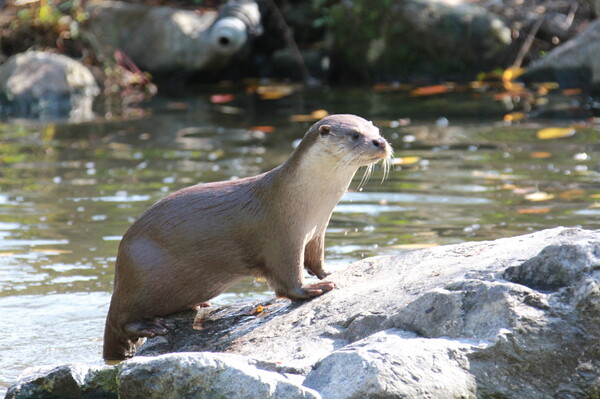Macrogen, a Korean genome analysis company, said that it used its genetic testing technology to confirmed that 15 otters were living in the Han River area. Otters are a Class 1 endangered wildlife species.
Macrogen and the Association of Korea Otter Conservation (AKOC) conducted the study to find out the otter habitat status around the Han River and come up with an appropriate management plan. Seoul Metropolitan Government commissioned the study.

In the study, AKOC collected otter feces from the mainstream of the Han River and smaller streams -- Tancheon, Jungnangcheon, and Saetgang. Then, Macrogen extracted genes from the collected feces to determine the number of otter populations living in the Han River basin and their relationship.
Through mitochondrial gene analysis, Macrogen confirmed that the fecal samples collected from the Han River area were otter feces, and identified 15 otters through polymerase chain reaction (PCR) amplification and microsatellite analysis.
Also, among the 15 identified otters, Macrogen confirmed two families, each consisting of mother, father, and three pups. Details of the rest five otters were not disclosed.
“The results of the genetic analysis will be useful in restoring the healthy habitat and species of otters living in the Han River basin,” the company said in a statement.
Meanwhile, Macrogen has been practicing ESG management by actively participating in the species restoration project for endangered wild animals and plants in Korea.
In 2016 and 2017, the company conducted genetic analysis for the restoration project of the crested ibis, which is a grade 2 endangered bird living in Upo Wetlands, South Gyeongsang Province.
Last year, Macrogen conducted a service project for the genetic testing of the family members of the victims of the Korean War promoted by the Ministry of National Defense Agency for KIA Recovery and Identification (MAKRI).
Through this project, the company conducted genetic tests for about 12,500 families of the deceased during the Korean War.
MAKRI has been conducting a project to identify the excavated precisely remains of unknown patriots who participated in the Korean War, compare them with the bereaved family genes, confirm their identity, and bury them at the Daejeon National Cemetery.
Related articles
- Macrogen wins patent for microbiome health info analysis device
- How far has Korean genome diagnostic tech come?
- Macrogen to build 'nation's largest' genome foundry in Sejong
- Macrogen installs Illumina’s latest production-scale sequencer
- [Reporter’s experience] ‘Theragen Bio’s genetic DTC test reveals some shocking signs’
- Macrogen breaks ground for ‘Asia’s largest genome big data hub’
- Macrogen identifies remains of Korean War civilian victims using genetic testing

